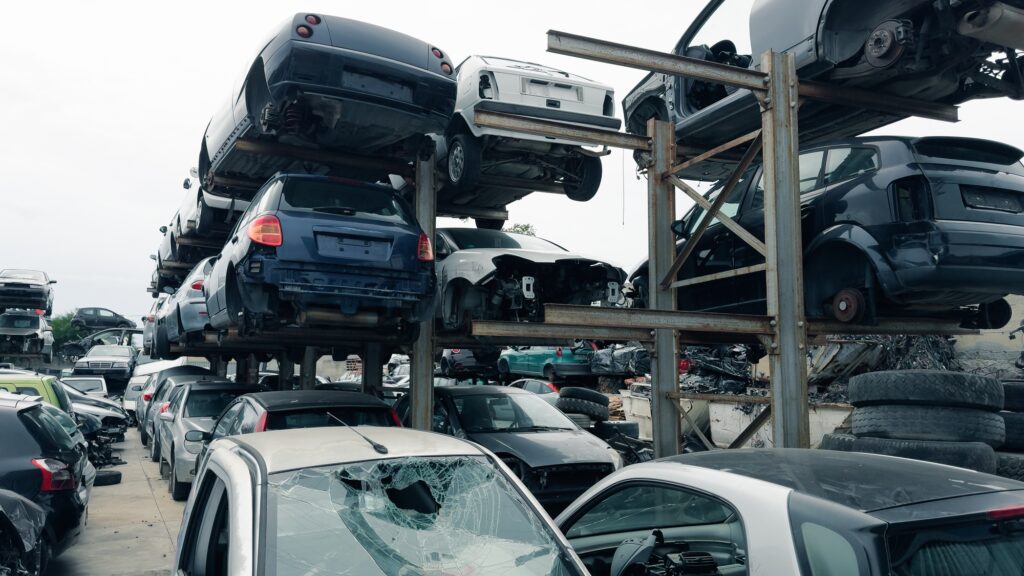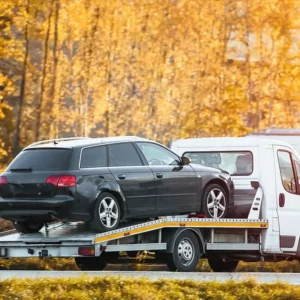The car industry is changing faster than ever before. Many older vehicles are reaching the end of their lifespans, while governments worldwide are tightening pollution regulations and promoting greener alternatives.
Here in New Zealand, sustainability has become a national priority. Scrapping a car is no longer just about getting rid of an old vehicle — it’s part of a bigger shift toward cleaner, more sustainable living. The rise in vehicle disposals across the country reflects many factors, which I’ll explore further.
The Global Push for Lower Emissions
The worldwide greenhouse gas emissions receive significant contributions from the transportation industry. The global governments have implemented stricter pollution standards to minimise environmental contamination while slowing down global climate change. Several countries, including the UK, as well as European Union member states and Australia, have established official timelines to phase out gasoline- and diesel-powered vehicles from their transportation systems.
The situation in New Zealand mirrors this pattern. The Ministry of Transportation states that road transportation accounts for 39% of the total CO₂ emissions associated with energy consumption. New Zealand established the Clean Car Standard, along with the Clean Car Discount, to reduce emissions through vehicle regulations that favour electric vehicles over high-emission cars.
For many vehicle owners with older, less efficient cars, new regulations are making it harder to keep them on the road. In most cases, scrapping the car becomes the most practical option.
Why Older Cars Are Being Scrapped Faster
There are several reasons why tightened emissions standards are accelerating the scrapping of cars:
Noncompliance with Emissions Regulations
Most vehicles built before the year 2000 face challenges when undergoing emission tests in modern times. The cheaper alternative to addressing emissions issues is scrapping, as vehicle repairs often exceed the acceptable cost for compliance.
Increasing Fuel Prices
Generally, older vehicles require more gasoline. Operating a car that consumes a lot of gas is becoming increasingly unfeasible due to New Zealand’s changing and rising petrol costs.
Reduction in Resale Value
The market for used gasoline and diesel vehicles is declining as more people opt for electric or hybrid alternatives. Scrap yards are becoming the final destination for cars that no one wants to buy.
High Maintenance Costs
Older cars don’t just produce higher emissions — they also break down more often. When you add up the constant repairs, rising fuel costs, and compliance requirements, it usually costs more to keep them than they’re worth.
The EV Transition: A Game Changer
Electric vehicles have transitioned from being a futuristic concept to becoming standard in today’s world. New Zealand saw unprecedented 2025 electric vehicle sales numbers as hybrids, along with plug-in EVs, captured rising market percentages. The government’s financial support structure, comprising subsidies and tax benefits, has driven this transition forward.
This transition directly impacts scrapping rates because:
- EV incentives make petrol cars less appealing: People trade in or scrap their old vehicles to switch to cleaner, more efficient models.
- Import regulations are tightening: High-emission vehicles entering New Zealand face penalties, reducing the flow of cheap used imports and pushing older models out of the market.
- Fleet upgrades are happening: Businesses are upgrading to electric fleets, scrapping old vans, utes, and cars that no longer meet efficiency targets.
What It Means for New Zealand Car Owners
The modifications present in New Zealand’s older vehicle market are probably noticeable to people who drive aging autos. Vehicle owners encounter challenging enquiries, which include:
- Should I continue repairing my car while dealing with rising fuel expenses?
- Is it worth selling if the resale value is dropping?
- Would scrapping and moving to an EV save me money in the long term?
People who want to save money and protect the environment find scrapping their cars to be the best option. Vehicle removal businesses, such as Taranaki Car Removals, assist customers by offering cash payments for their cars and providing complimentary towing services, as well as environmentally friendly vehicle disposal options.
Environmental Benefits of Scraping
The process of scrapping vehicles involves both responsible recycling practices and the removal of cars.
- Recycling Materials About 80% of the materials used in a car, including steel, aluminium, rubber, and plastics, can be recycled. The practice decreases raw material requirements while simultaneously reducing industrial pollution levels.
- Proper Fluid Disposal The removal services for cars guarantee the secure disposal of hazardous fluids, including oil, brake fluid, and coolant, to prevent soil contamination and water pollution.
- Encouraging Cleaner Transport Scrapping high-emission vehicles doesn’t just clear space on the road — it helps cut down pollution and makes way for cleaner, greener transport options across New Zealand.
Economic Benefits for Vehicle Owners
Scrapping your car isn’t just good for the environment — it can also be good for your wallet.
- Instant Cash Companies like Taranaki Car Removals pay competitive rates for unwanted vehicles, no matter their condition, giving you money in hand straight away.
- Savings on Repairs and Fuel Instead of constantly spending on breakdowns, fuel, and upkeep, scrapping your old car offers a clean break — and real financial relief.
- Supporting Circular Economy Recycled car parts help reduce costs for others in the market for second-hand auto parts.
Challenges in the EV Transition
Switching to electric vehicles brings plenty of benefits, but the journey isn’t without its bumps along the way:
- Charging Infrastructure For many people in New Zealand’s rural areas, charging stations are still scarce. This makes owning an EV less practical outside the main cities.
- Upfront Costs Even with government subsidies, electric vehicles can feel out of reach for many families. Compared to the price of older, second-hand cars, the higher upfront cost remains a significant hurdle.
- Battery Recycling Current industry efforts focus on establishing efficient systems for recycling electric vehicle batteries on a large scale.
The transition to electric vehicles will occur gradually due to these obstacles, but the movement towards electric vehicle scrapping remains on a steady path.
Looking Ahead: What to Expect in the Next Decade
Industry experts predict that electric and hybrid vehicles will account for the majority of new car sales in New Zealand by 2035. The speed of the transition will cause us to observe the following developments:
- Vehicles that fail to meet emission standards will increasingly be destroyed as time progresses.
- The thriving business of vehicle removal functions as an effective system for recycling purposes.
- The second-hand electric vehicle market is expected to expand as the current generation of new electric vehicles transitions into more affordable options for the future.
Vehicle owners need to understand that maintaining high-emission vehicles will transform into a more cost-prohibitive and challenging practice in the future. Deciding to scrap your vehicle before it becomes a liability will result in better advantages.
Conclusion
The rise in vehicle scrapping, driven by stricter environmental rules and the shift to electric vehicles, shows New Zealand’s strong commitment to a more sustainable future.
When we remove old vehicles from the streets, we can conserve necessary resources and reduce pollution, while making room for cleaner, environmentally friendly transportation options. The business model at Taranaki Car Removals enables vehicle owners to convert their unneeded cars into income while promoting environmental sustainability.
New Zealand’s transition towards an electric transportation system requires scrapping to remain fundamental in establishing a cleaner and healthier transit system for all citizens.


